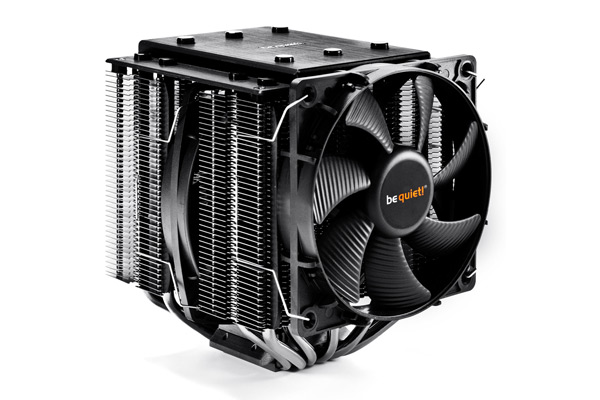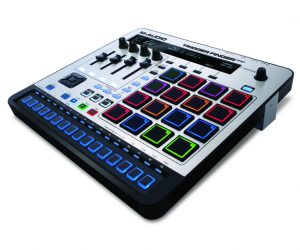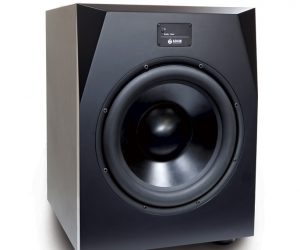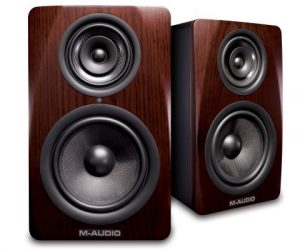
PC AUDIO 107
DIY advice that will bring a smile to your face and silence to your studio.
Column: Martin Walker
When I first started writing about using desktop PCs for audio nearly 20 years ago, we musicians had major problems with noise — the whirs, clangs, whooshes and squeaks emitted by a collection of cooling fans, hard drives and tinplate casings… and it’s still a concern. Many musicians record vocals and acoustic instruments in the same room as their PCs, and even if your music is electronica created entirely in-the-box, you’re likely to make slightly different mixdown decisions if you can hear the steady roar of cooling fans in the background. Thankfully the multimedia world at large has since become attached to the idea of a quiet living room PC, and as always, mainstream interest inevitably results in more competitive prices.
So nowadays, you don’t have to resort to cutting a cable hole in the wall to site your computer in the next room, or place it in an expensive custom-designed soundproof cupboard, as most specialist audio PC dealers offer quiet and even totally silent PCs (with no moving parts) in their range. Nevertheless, there are still many musicians out there who wish their computers were a little quieter. So, first of all, take a little time to clean the inside of your machine. I recently whipped off my computer’s side panel and was shocked to see just how much muck had been sucked in via the front intake cooling fans, even though my studio remains a resolutely non-smoking environment. After powering down and unplugging the mains lead for safety’s sake, a few minutes with a camel hair brush inside the machine while holding a vacuum cleaner attachment nearby to extract the debris left me with clean air filters at the front, sparkling fan blades, and heatsinks and circuit boards that were shiny rather than coated in a patina of grey dust. Blow me (pun intended), when I powered it back up my computer was noticeably quieter already, simply because air could pass through more easily!
Next stop with a noisy computer is to look for and deal with the weakest link in the chain, so have a crawl around your machine to see what component is producing the loudest noise. For some people this may be the cooling fan in the power supply, especially if you’ve purchased a budget PC, but this is easily remedied by replacing it with a more capable PSU containing a larger and slower-running fan (120mm is typical, and will be a lot quieter than any smaller fan moving the same amount of air). If you want reliability then don’t skimp here; buy a power supply from a well-known brand (I have a soft spot for Seasonic) with enough capacity to run everything. If you’re unsure about the required capacity, pay a visit to www.extreme.outervision.com/psucalculatorlite.jsp and add up the requirements of your main components. Don’t be surprised if the total is a lot lower than you expect — my overclocked quad-core machine consumes less than 300W and is perfectly happy with a manly 500W PSU.
If the noisiest item is your CPU cooling fan, then replacing the combined heatsink/fan assembly with one utilising a larger 140mm fan is an option, although not as straightforward as a PSU swap, especially if you’ve not dealt before with the likes of thermal paste (which ensures the best heat transfer between processor and heatsink). A handy guide can be found at www.wikihow.com/Apply-Thermal-Paste, but if you need to consider such a major replacement I’d advise seeing if your motherboard supports a faster CPU so you can invest in a new combined CPU/heatsink/cooler and throw a system performance boost into the bargain.
One of the easiest ways to lower acoustic noise levels is to replace older mechanical hard drives with one or more modern Solid State Drives, which have no moving parts and hence make no noise at all. SSDs will also provide significantly faster Windows boot-up and application launch times, although they are unlikely to boost audio or sample streaming performance compared with traditional hard drives (whose sustained transfer rates can already support 100+ audio tracks and hundreds of sample voices without breaking into a sweat). If you’ve got enough money to replace all your mechanical hard drives with larger SSD models then you’ll certainly end up with an extremely quiet PC, but if not I can recommend buying one SSD for Windows, but sticking with mechanical hard drives for your audio and sample data. However, rather than bolting the latter into drive bays inside your case, or even using rubber grommets, use elastic suspension instead. This now ancient thread from the Silent PC Review forum entitled ‘HDD vibration & noise reducing methods – ranked’ (www.silentpcreview.com/forums/viewtopic.php?t=8240) offers classic advice for the DIY’er that stands the test of time extremely well.
If you’re considering building yourself an entirely new PC then choosing a suitable case is paramount to achieving low acoustic noise levels. I’d recommend one that features a hinged front door that completely covers any DVD drives, since this not only prevents any remaining mechanical noise escaping from the inside of the case, but will also quieten the DVD drive when it’s being accessed. I’m personally a fan of the Fractal Design Define series of cases, which incorporate high density noise-reducing material in their main panel construction, a three-speed fan controller that on its slowest setting is well nigh silent, yet modestly priced.
My current PC is built around such a case and contains a quad-core CPU overclocked to 4.4GHz, 8GB of RAM, a modest graphics card (only gamers require faster), one SSD and two mechanical hard drives, yet is almost silent. In fact, a buzzing transformer in my racked power amp became more annoying, that is until I eradicated that buzz by whipping off the amp’s top panel and inserting some neoprene strips between it and the mains transformer. Then my two mechanical hard drives became the loudest components in the studio, whereupon adding elastic suspension to them returned my computer to ‘is it on yet?’ status. Silence is golden, but may be cheaper than you think!

















RESPONSES